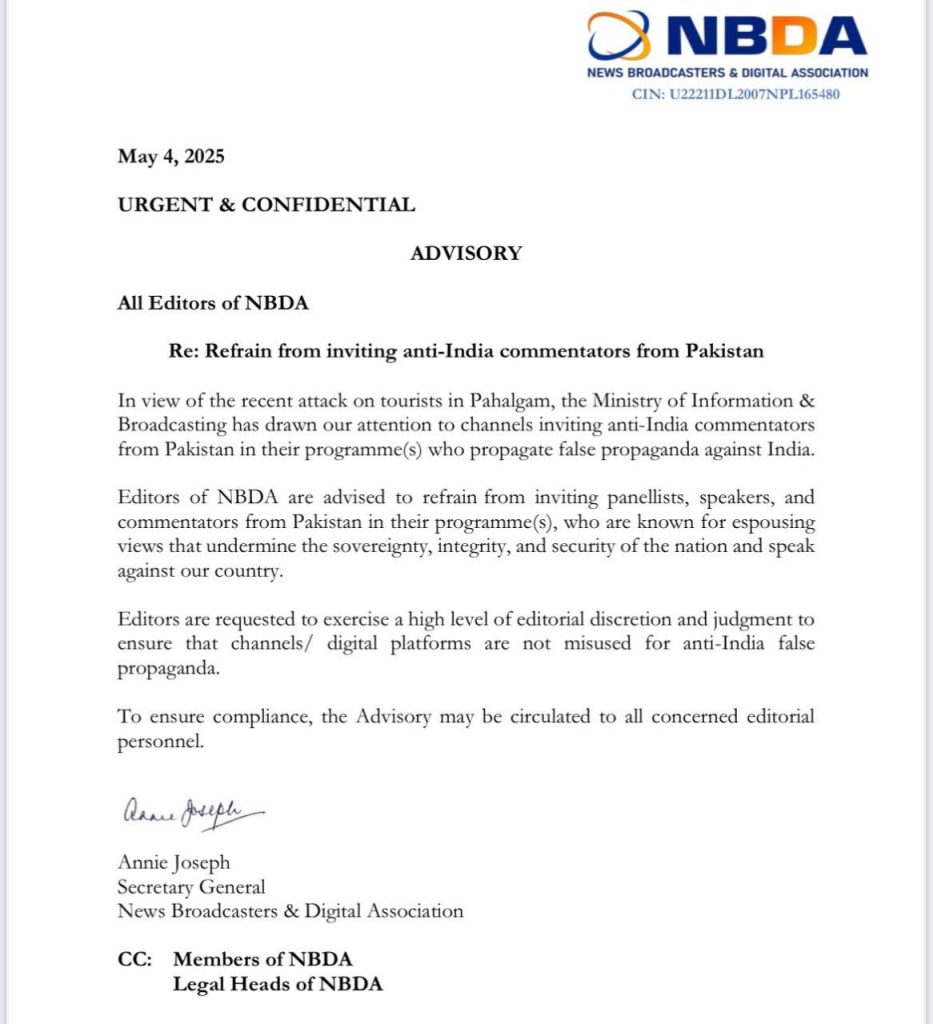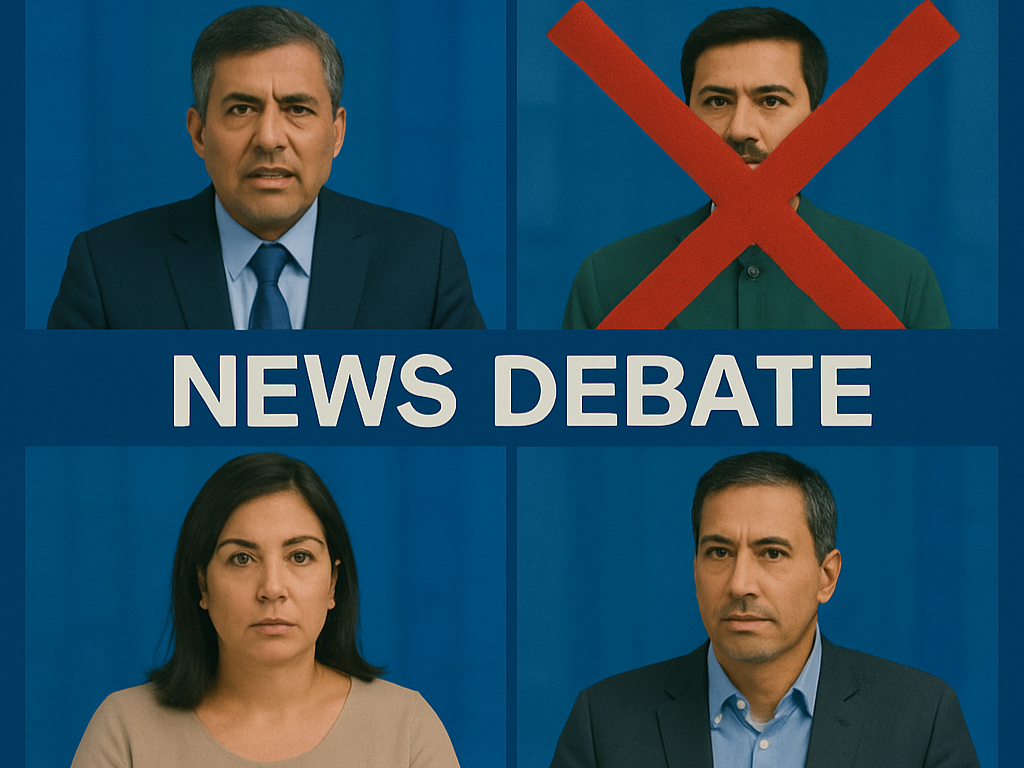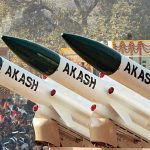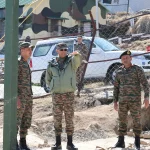In a significant move amid rising tensions between India and Pakistan, the News Broadcasters & Digital Association (NBDA) has issued an urgent advisory to all its member channels, prohibiting the participation of Pakistani panelists in Indian news debates and programs.
The directive, labeled “Urgent & Confidential” and signed by NBDA Secretary General Annie Joseph, cites concerns raised by the Ministry of Information & Broadcasting over the use of Indian media platforms by Pakistani commentators to spread anti-India narratives. The advisory accuses some foreign participants of engaging in “false propaganda against India” and using televised platforms to undermine the nation’s sovereignty.
The move comes in the aftermath of a deadly terrorist attack in Pahalgam, Kashmir, on April 23, 2025, where tourists were targeted. Indian authorities have linked the attack to Pakistan-based militant groups, identifying two suspects as Pakistani nationals. Islamabad has denied involvement, but the incident has deepened the diplomatic chasm between the two countries.

In response to the attack, India has initiated a range of diplomatic and military measures, including naval missile test strikes. Prime Minister Narendra Modi, speaking after the attack, vowed a relentless pursuit of the perpetrators, framing the incident as a direct assault on Indian security and unity.
The NBDA’s advisory aligns with a broader government directive issued on April 26, 2025, advising media houses to avoid live coverage of counter-terror operations. The ministry referenced past incidents like the 2008 Mumbai attacks, where unrestricted broadcast was said to have compromised national interests.
While some in the media industry have welcomed the NBDA’s latest move as a measure to preserve national unity and prevent hostile narratives, others have raised concerns about the implications for free speech and open cross-border dialogue. Nonetheless, the advisory urges strict compliance, reinforcing a growing trend of strategic information control in times of heightened geopolitical strain.
As Indo-Pak relations continue to fray, the media’s role in shaping public perception and safeguarding national interests has come under sharp scrutiny, with regulatory bodies stepping up to limit external influence during periods of crisis.













